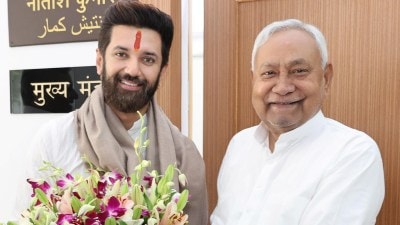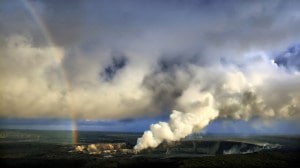Such a long journey
Prime Minister Junichiro Koizumi’s landmark journey last Tuesday to Pyongyang for the first ever summit between North Korea and Japan, ...

Prime Minister Junichiro Koizumi’s landmark journey last Tuesday to Pyongyang for the first ever summit between North Korea and Japan, who have no diplomatic relations, and their bilateral relations have, at best, been frosty, was clearly a success.
It is difficult not to draw a parallel between this unique summit and the Nixon visit to Beijing in 1972. It would also not be far from reality to compare it with Prime Minister Vajpayee’s bus diplomacy to meet Nawaz Sharif and pay homage at the Minar-e Pakistan.
Given the nature of the world today, the Pyongyang summit promises even far reaching consequences for Asian security in the coming decades. Few, if any, saw Koizumi’s visit anything but a ‘‘bold gamble’’ that was more full of risks than promises. But the summit turned out to be more positive than the most optimistic expectations, although it raised new sadness in Japan.
Japanese attitudes had been strongly influenced by emotions about the 11 Japanese missing since the 1970s and 1980s suspected to have been kidnapped by North Korea and employed to train intelligence agents. President Kim Jong-il surprised the world by formally rendering an apology while admitting to the criminal conduct. But the Japanese sentiments have been deeply affected by the knowledge that six out of the kidnapped eleven were no longer alive. The issue, therefore, is not going to go away and will need extremely sensitive handling by both sides.
Of great significance is the Japanese initiative to reshape security environment in the region. Even The New York Times conceded that the Koizumi initiative was a rare moment of clear ‘‘diplomatic assertiveness’’ by Japan that traditionally stayed close to the US positions on foreign and security policies beyond that dictated by the alliance commitments. The fact that President George W. Bush had labelled North Korea as one of the three members of an “axis of evil” only lent greater poignancy to the Japanese moves.
That this comes in the wake of a number of efforts by major Asian powers to open up dialogue and co-operation with the three states does not mean a break with the US. But it does begin to indicate that Tokyo is willing to explore beyond the straitjacket of an alliance-dictated posture that it followed for decades.
Japan and North Korea agreed to resume the normalisation process that has been erratic since the end of Cold War and stalled for the past two years. Dialogue toward that end could start as early as next month. North Korea has committed itself to suspend missile testing indefinitely, open up the nuclear installations to IAEA inspections, offered a dialogue with the United States, and indicated an end to its policy of transferring ballistic missiles to other countries.
A sincere implementation of this promise would end future supplies of technology and missiles to Pakistan, whose intermediate-range ballistic missiles are essentially the North Korean Nodong variety (believed to be based on Chinese designs).
Its co-operation with the IAEA should help to reduce suspicions about its intentions.
In a season of apologies, Koizumi also clearly expressed Japanese regret for what Imperial Japan had done to the Koreans during thirty-year colonial period till 1945. Acceptance of historical responsibility would ease the process of Japan coming to terms with its past.
This has been more difficult for it than for Germany since the latter could transfer all responsibility to the Nazis, while Japanese break with the past was less complete. However, there is no sign of Japan accepting Korean demands for reparations. Instead what appears to be on the cards is extensive economic aid and co-operation which could be as high as $8-10 billion if the normalisation dialogue continues to bear fruit.
It is often ignored that the bipolar confrontation of the Cold War dissolved because a closed authoritarian dogmatic militarist system opened up, re-ordering the international order. The opening up of North Korea, of which the Pyongyang summit is an important benchmark, would conceptually fall in similar category. And Japan deserves the credit for the bold step whose failure could well have cost Koizumi his political career.
There is a clear lesson here for South Asia where another authoritarian militarised system is still holding on to the vestiges of power at the cost of its own people and regional co-operative peace is a hostage to parochial vested interests. Secondly, engagement by an Asian power of a state termed as ‘‘evil’’ by the sole super power reflects a trend of the coming Asian century where peace and prosperity in Asia would depend heavily on the role that major countries of Asia play. And Japan clearly has shown the way for future engagement.
Thirdly, Tokyo by its actions has re-affirmed that the international order would be influenced by a polycentric approach rather than a unipolar dispensation. The United States has been supportive of the Japanese efforts at normalisation of relations in East Asia. But progress of normalisation in North East Asia based on the Japanese initiative would also highlight the flaws in US strategy of containment and unilateralism. At the same time, it would also influence future US military policies in the region.
Fourthly, New Delhi would do well to actively support the process of normalisation in East Asia and engagement of North Korea in these historic times. It is worth recalling that the first military-humanitarian mission, which became the vanguard for what came to be known as UN ‘‘peace-keeping operations’’ was undertaken by India at the end of the Korean War in 1953. There is a lot of scope for New Delhi to work with Tokyo in the reconstruction of North Korea and helping it evolve as a co-operative state in the coming years. And somewhere here there is also a lesson for the Pakistani elite if they wish to see it.






- 01
- 02
- 03
- 04
- 05

























